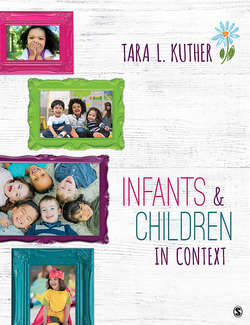Читать книгу Infants and Children in Context - Tara L. Kuther - Страница 163
На сайте Литреса книга снята с продажи.
Emotional Well-Being
ОглавлениеAlthough stress is inherently part of almost everyone’s life, exposure to chronic and severe stress during pregnancy poses risks, including low birthweight, premature birth, and a longer postpartum hospital stay (Field, 2011; Schetter & Tanner, 2012). Maternal stress influences prenatal development because stress hormones cross the placenta, raising the fetus’s heart rate and activity level. Long-term exposure to stress hormones in utero is associated with higher levels of stress hormones in newborns (Kapoor, Lubach, Ziegler, & Coe, 2016). As a result, the newborn may be more irritable and active than a low-stress infant and may have difficulties in sleep, digestion, and self-regulation (Davis, Glynn, Waffarn, & Sandman, 2011; Kingston, Tough, & Whitfield, 2012). Later in childhood, he or she may have symptoms of anxiety, attention-deficit/hyperactivity disorder, and aggression (Glover, 2011). Prenatal stress may also have epigenetic effects on development, influencing stress responses throughout the lifespan (Van den Bergh et al., 2017). Stress in the home may make it difficult for parents to respond with warmth and sensitivity to an irritable infant (Crnic & Ross, 2017). Social support can mitigate the effects of stress on pregnancy and infant care (Feldman, Dunkel-Schetter, Sandman, & Wadhwa, 2000; Ghosh, Wilhelm, Dunkel-Schetter, Lombardi, & Ritz, 2010).
